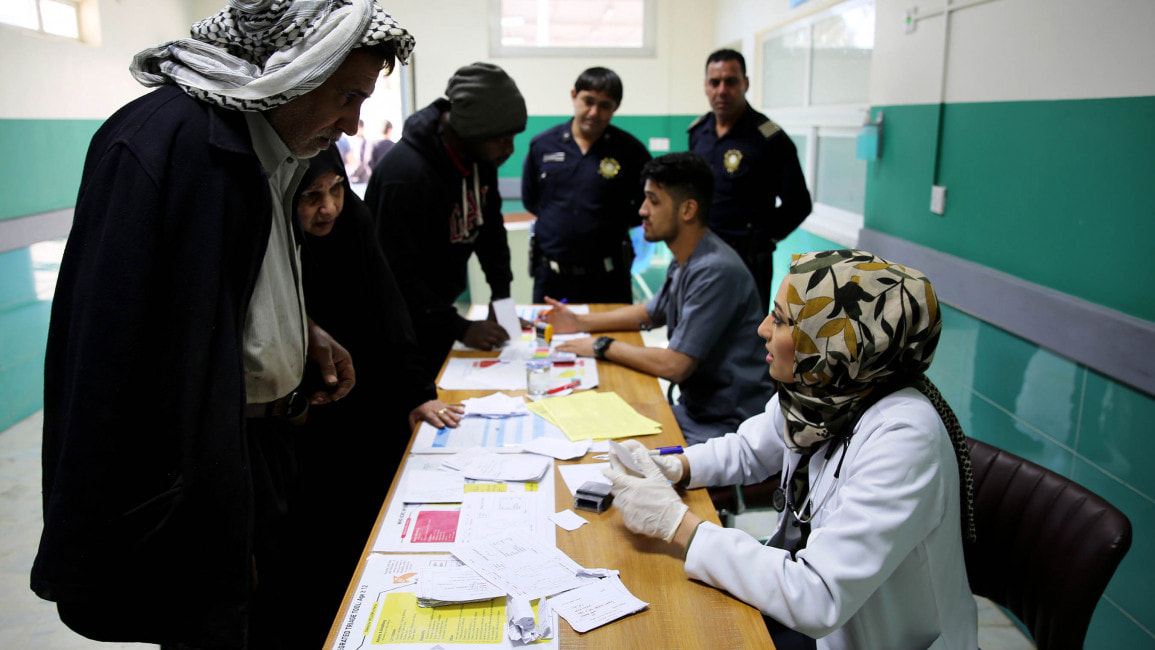The rising price of medicines in Iraq is leaving many unable to afford what used to be provided free of charge. As mafia-style networks with links to influential political players control the import, distribution and pricing of medicines, Iraqi officials warn that the health ministry is incapable of proposing an effective solution to the humanitarian crisis unfolding.
This year, medicine prices saw a sharp increase due to the dollar's rising exchange rate and the Covid-19 pandemic, among a host of other factors. As a result, scores of deaths were registered in hospitals across the country, as critically ill patients were unable to afford the drugs they needed and had been forced to seek on the black market.
Despite the severity of the situation, the health ministry has failed to press for concrete proposals to tackle the issue. According to a health official who preferred not to be named, "the ministry is following the matter and plans to tackle the situation through coordinating with the security services. It has also run campaigns targeting pharmacy owners, demanding that they cap the prices of various medicines. However, these campaigns have not yet had much effect on prices."
He continues, in a conversation with Al-Araby Al-Jadeed, The New Arab's Arabic-language sister publication: "This issue has been building for years, and right now, the country is effectively dependent on the drugs traders who are controlling imports in accordance with demand."
He pointed out: "Relying on these traders has left the ministry powerless to control the prices or quality of medicines in the country, a huge amount of which is produced without oversight or compliance with any kind of health regulations.
"The ministry has plans to reform the system, which focus on expanding government imports and fixing the health system so free medication is once again provided in hospitals and health centres. However, this needs time and substantial funding to be implemented."
MP Amer Al-Fayez confirms that the issue has become critical and needs swift treatment: "The issue is dominated by mafias who control import as well as distribution to medical suppliers and pharmacies, exploiting the absence of governmental oversight. This has allowed them to set the prices as high as they like with no concern for citizens.
"The issue requires serious action by the ministry – not just lip service. The government must designate a special task force to monitor and pursue this issue from start to finish – from the moment of import until the sale to citizens. There also needs to be a strong accountability mechanism for those who violate the law and punishments need to be enforced."
The demise of Iraq's pharmaceutical industry
He mentions the demise of Iraq's pharmaceutical industry, emphasising that "Iraqi factories used to manufacture medicines and Iraq had a degree of self-sufficiency in this area. However, today they are struggling, and need governmental support. Not only this but tailored plans need implementing to help them increase their output in a way which will support the local healthcare market with some of the medicines it needs."
The Syndicate of Iraqi Pharmacists criticised the ministry's plans, insisting that the problem would not be solved by attempts to investigate the pharmacies alone. Samer Khalidi, a syndicate member, said: "They always just focus on the pharmacies. And yes, this may be a part of the solution – but it is in no way enough."
Comprehensive solution needed
Khalidi further explains, "The issue needs a comprehensive approach, starting with the import contracts. Then they need to implement quality control over the medicines, cover hospital requirements in terms of free medication, and support the pharmaceutical industry sector in the country. In addition to this they need to clamp down on ministry corruption around medical contracts, and after all that comes the step of forming teams to monitor and investigate pharmacies to curb prices – the pharmacies are the final link in the chain when it comes to escalating prices."
Source (Click Here)



 RSS Feed
RSS Feed